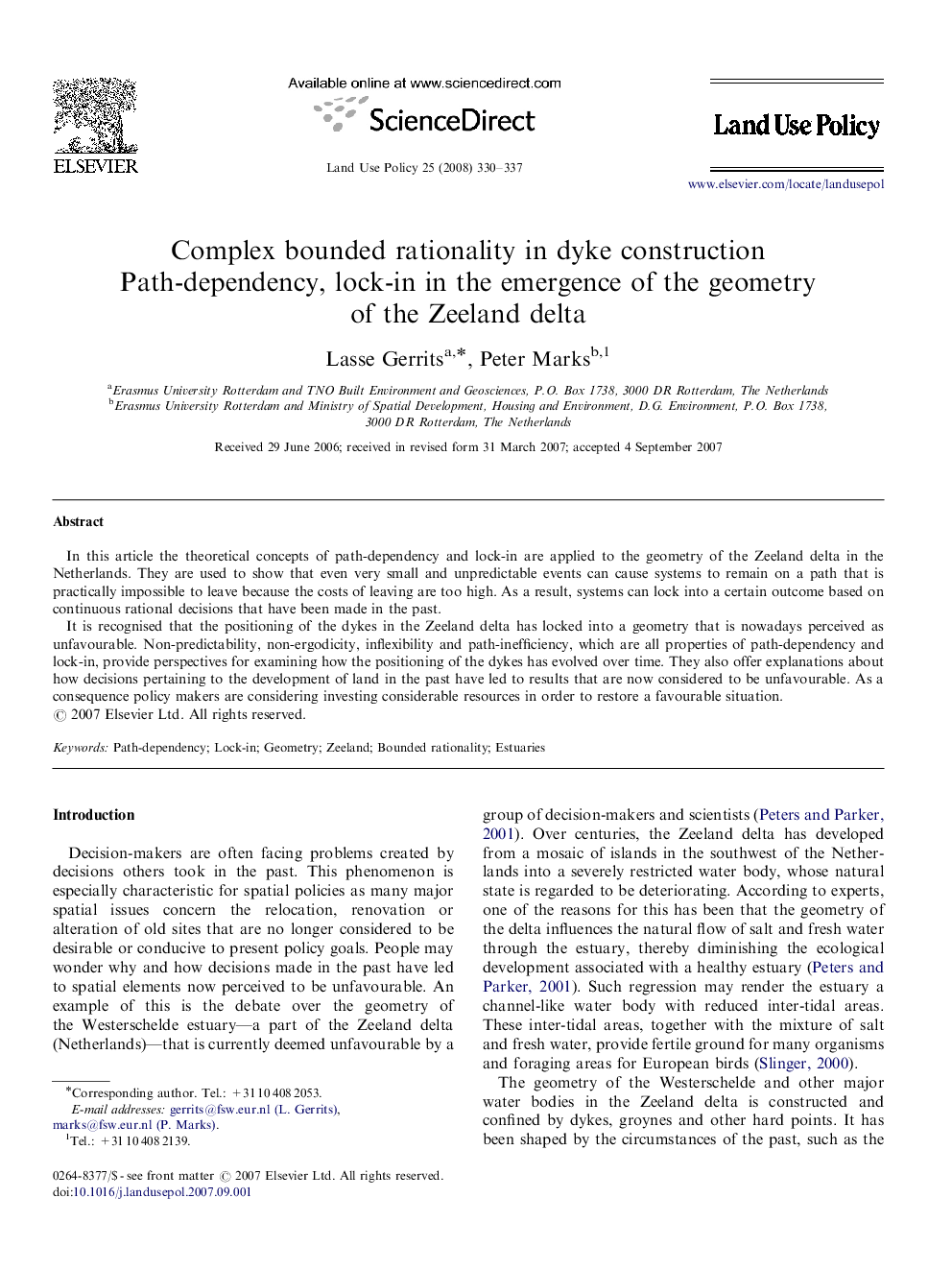| Article ID | Journal | Published Year | Pages | File Type |
|---|---|---|---|---|
| 93830 | Land Use Policy | 2008 | 8 Pages |
In this article the theoretical concepts of path-dependency and lock-in are applied to the geometry of the Zeeland delta in the Netherlands. They are used to show that even very small and unpredictable events can cause systems to remain on a path that is practically impossible to leave because the costs of leaving are too high. As a result, systems can lock into a certain outcome based on continuous rational decisions that have been made in the past.It is recognised that the positioning of the dykes in the Zeeland delta has locked into a geometry that is nowadays perceived as unfavourable. Non-predictability, non-ergodicity, inflexibility and path-inefficiency, which are all properties of path-dependency and lock-in, provide perspectives for examining how the positioning of the dykes has evolved over time. They also offer explanations about how decisions pertaining to the development of land in the past have led to results that are now considered to be unfavourable. As a consequence policy makers are considering investing considerable resources in order to restore a favourable situation.
